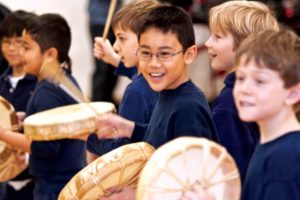Youth taking the lead on reconciliation

Nearly three-quarters of Indigenous youth in Canada believe they will see meaningful reconciliation in their lifetime, an online poll has revealed.
The Canadian Youth Reconciliation Barometer, a study done by Environics Institute for Survey Research and released in early July, found 73 per cent of Indigenous youth and 68 per cent of non-Indigenous youth were somewhat or very optimistic about the direction reconciliation is headed. The online poll surveyed 682 Indigenous and 695 non-Indigenous youth between 16 and 29 nationwide in late March and April.
Chrystal Désilets, Indigenous rights program co-ordinator with the church-based ecumenical justice organization KAIROS is happy to hear a good news story surrounding Indigenous youth for a change. She credits those same youth for taking a leading role in forming alliances with non-Indigenous youth to help heal a long and broken relationship between the original inhabitants of Canada and those who followed.
“I think that really speaks to a lot of the youth-led organizations that have developed, such as the 4Rs Youth Movement and the Assembly of Seven Generations,” said Désilets. “Their partnerships, their framework is designed between Indigenous and settler allies.”
These youth are having a “meaningful ripple effect,” particularly in remote communities that have been dealing with five centuries of colonization, and there remains in some areas a “real shame around Indigenous culture,” said Désilets. More young people are experiencing life beyond their isolated communities and “they’re starting to shine a light where there is a place for culture as well as ecumenical faith.”
Jesuit Fr. Peter Bisson was also pleasantly surprised to hear the poll results but knows there is still a long way to go, particularly for churches and their legacy with residential schools which sought to assimilate Indigenous children into Euro-Canadian culture. It’s something that caused immense damage, and will be hard to forget, said Bisson, the former provincial superior for the Jesuits in English Canada.
“That doesn’t change overnight,” said Bisson. “We’ve got 500 years of history. But we have to work at it.”
Désilets, an Algonquin (on her mother’s side) from the Pikwakanagan First Nation in eastern Ontario, says the residential schools “are a really important link in the chain of history” that have helped shape Canada. But for all the wrongs that came out of those schools, it is the schools today bringing reconciliation to the forefront. Churches, too, can play a key role, she said.
“There is a lot of opportunity for the schools and the churches to engage with community-based solutions. To see the intergenerational shift where the youth are really taking leadership is just so wonderful,” said Désilets.
Continue reading the story on The Catholic Register.
This article was written by Mickey Conlon and first published on July 24, 2019 in catholicregister.org.
